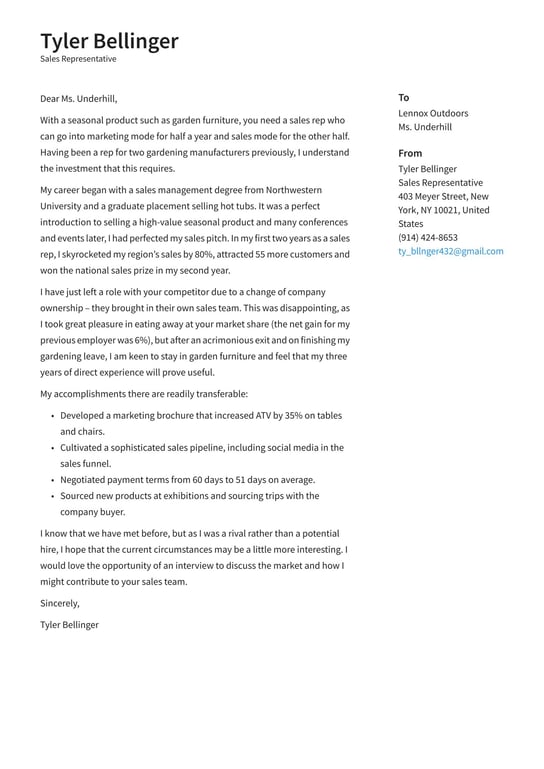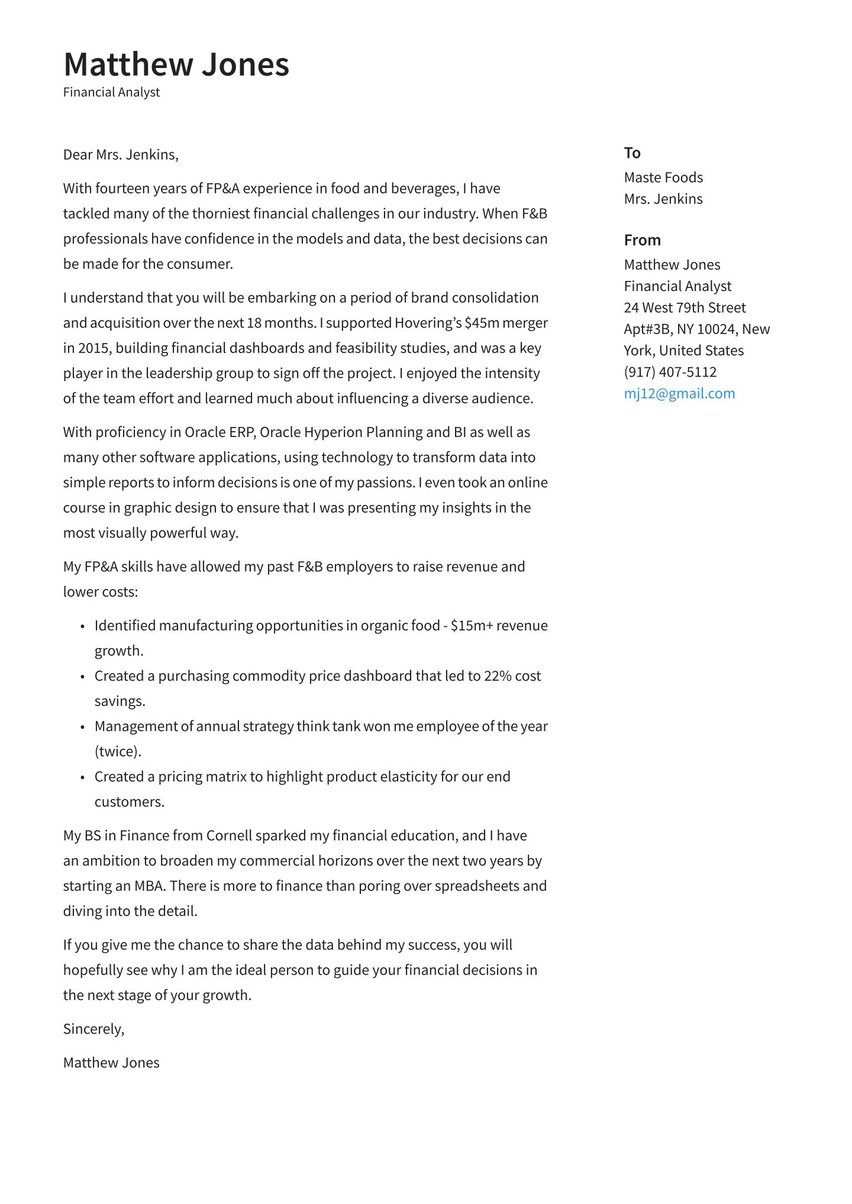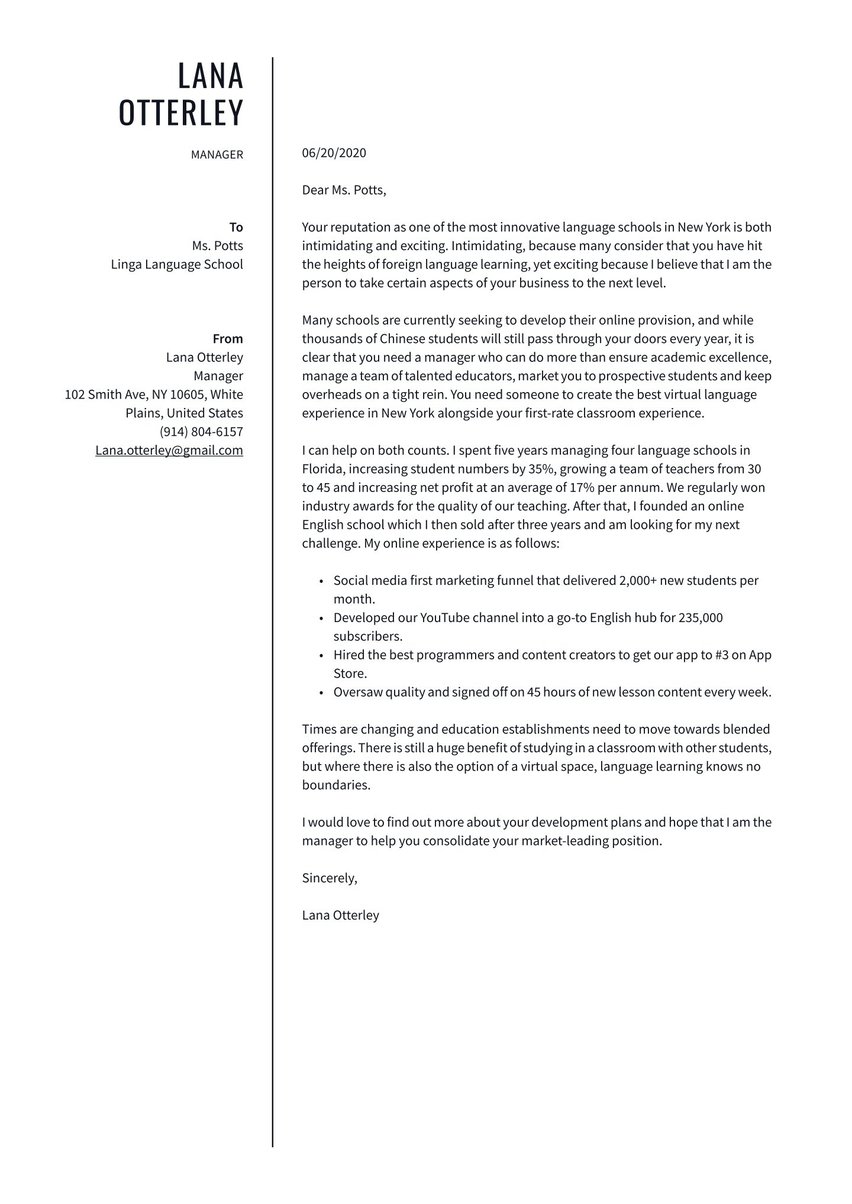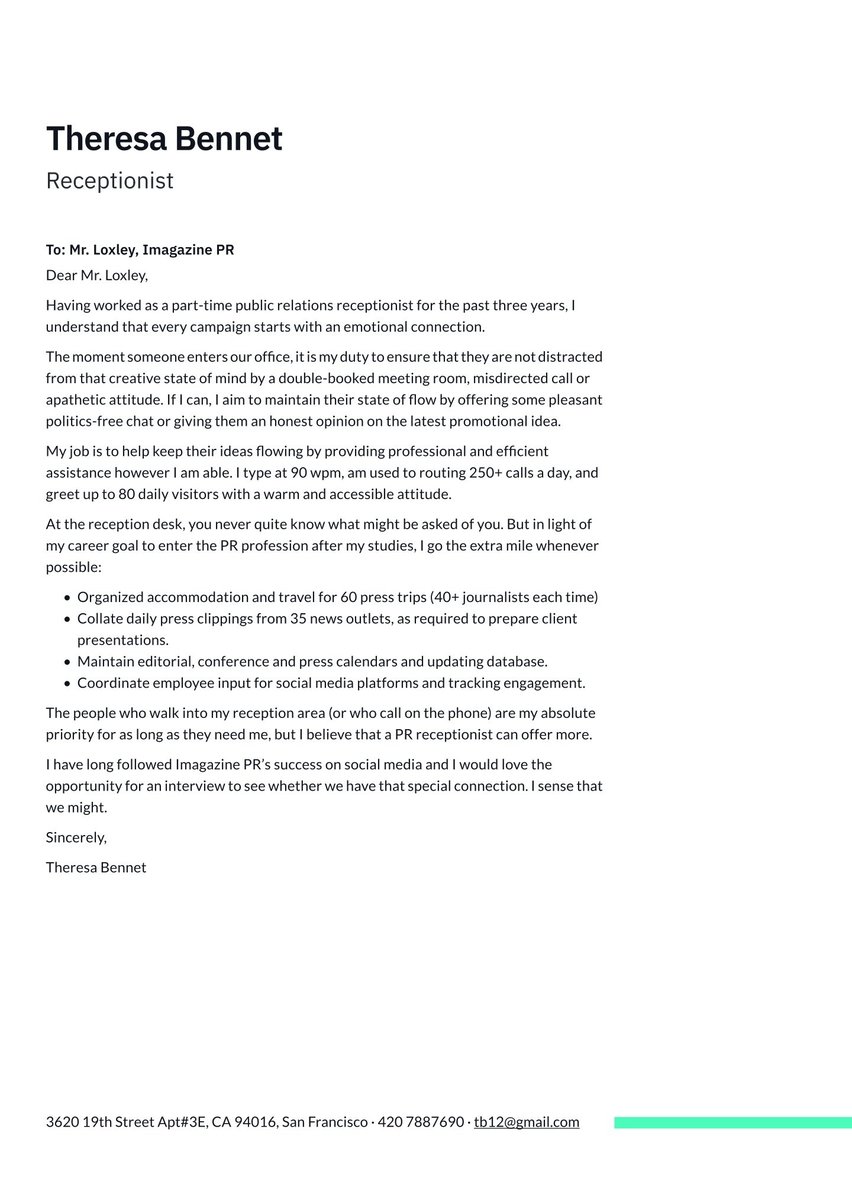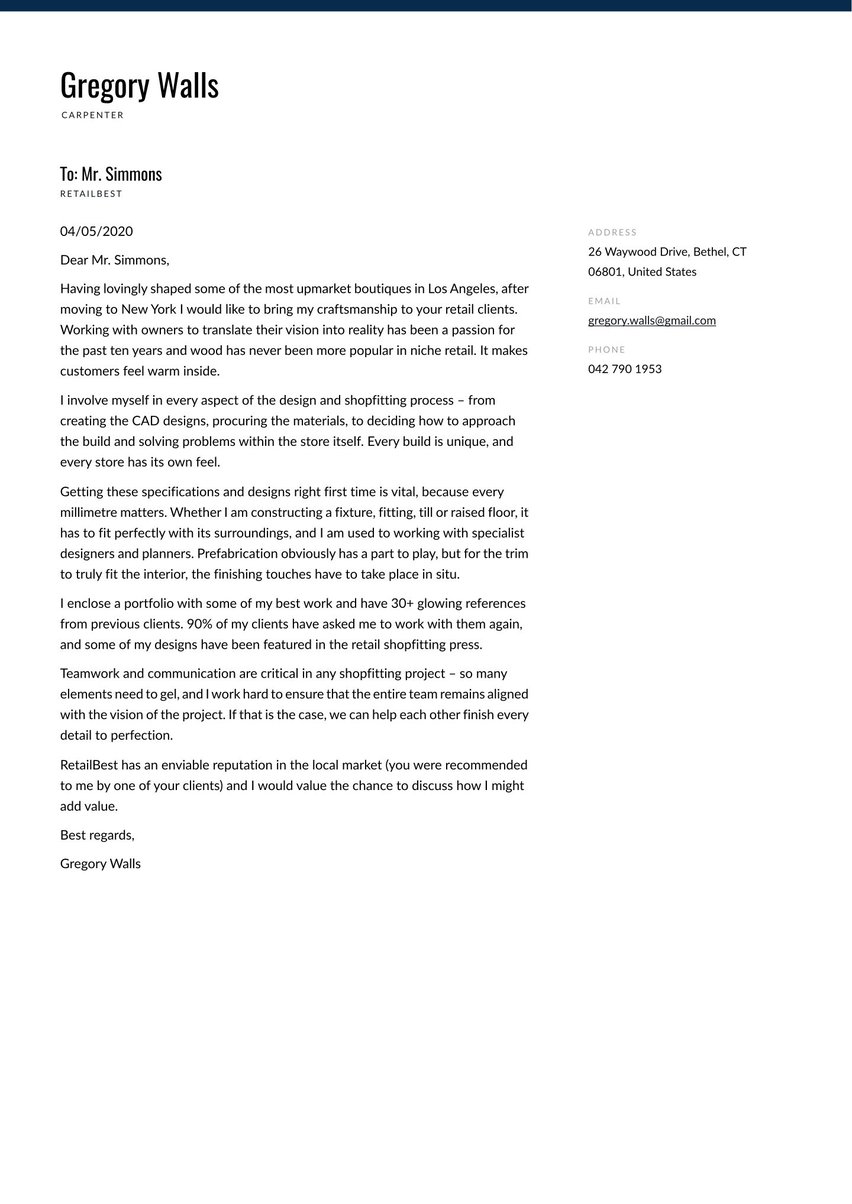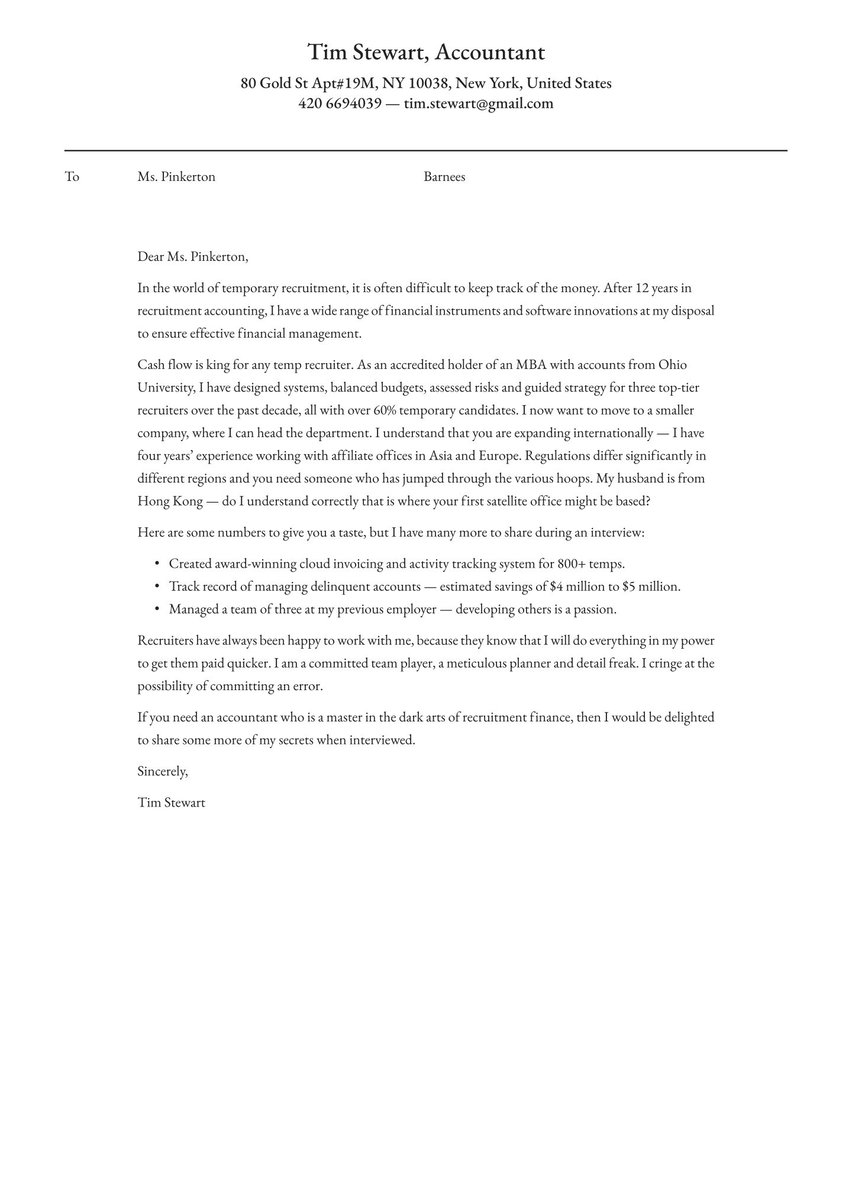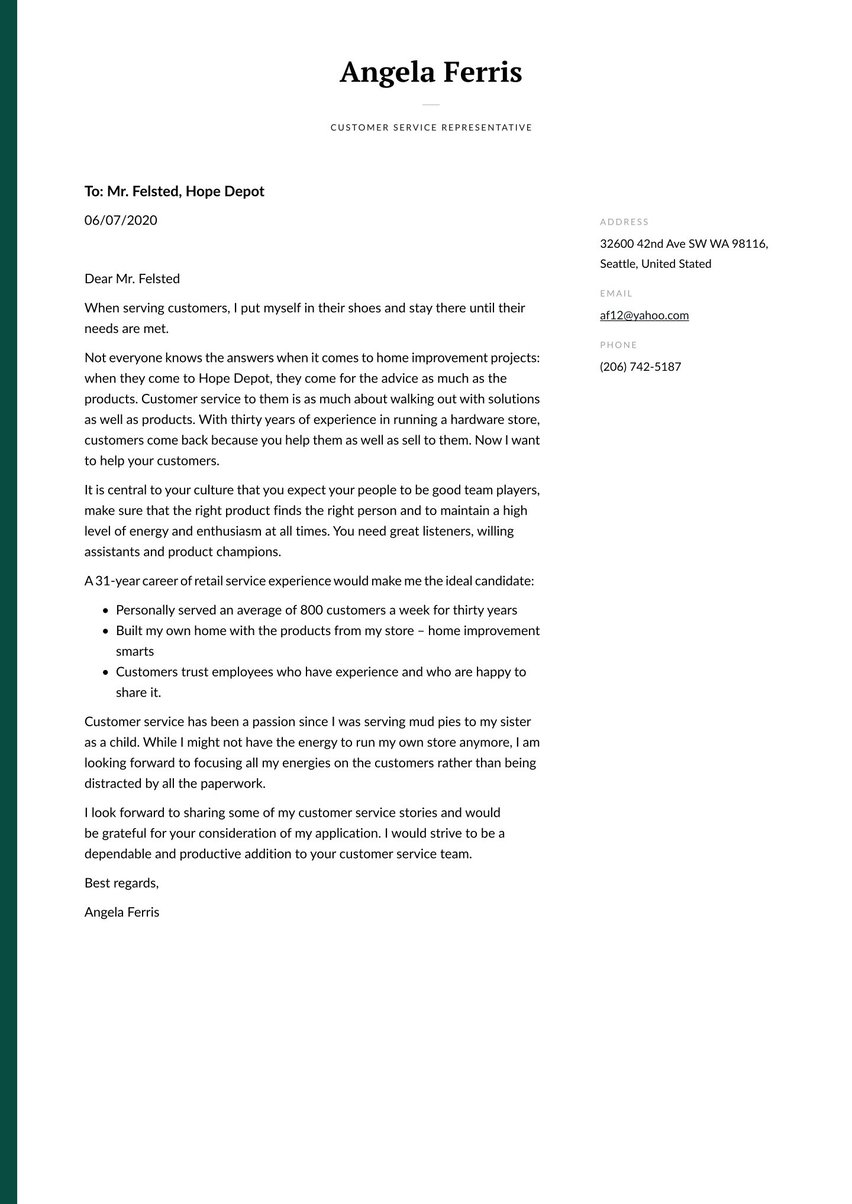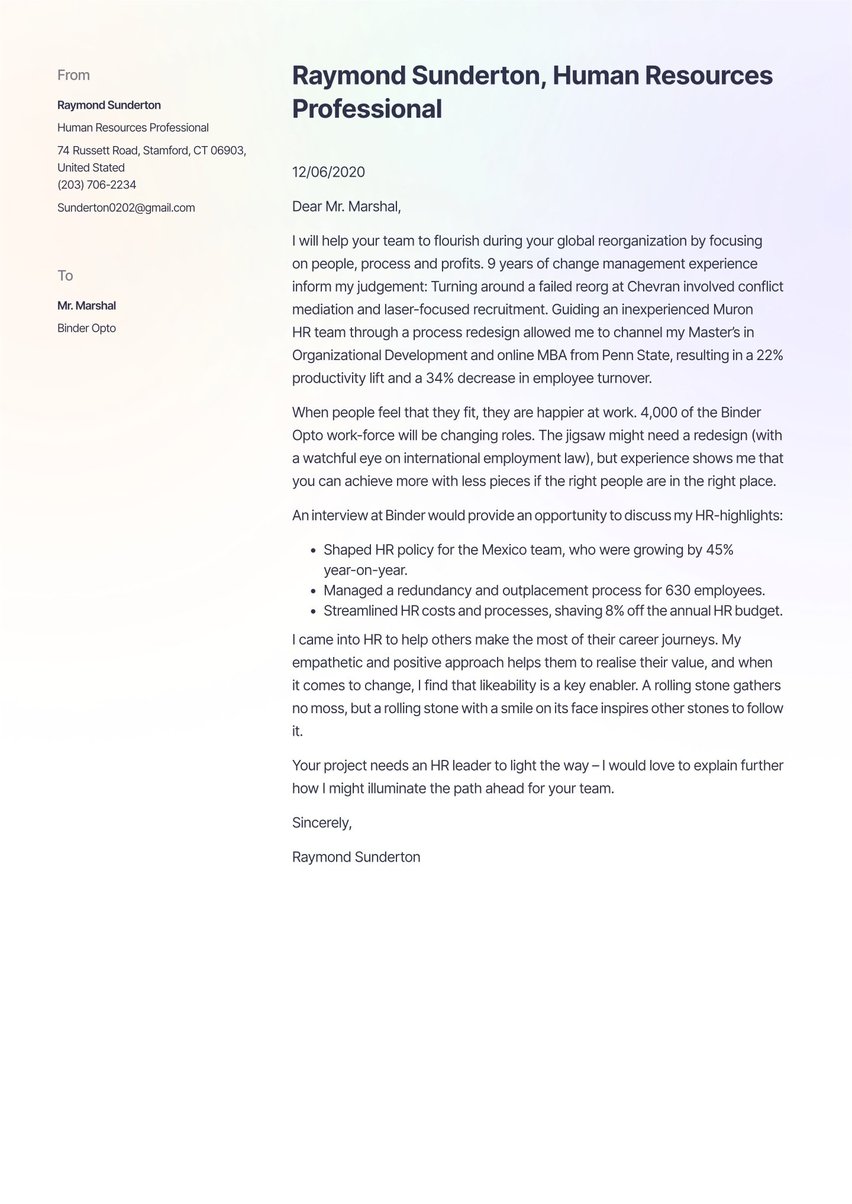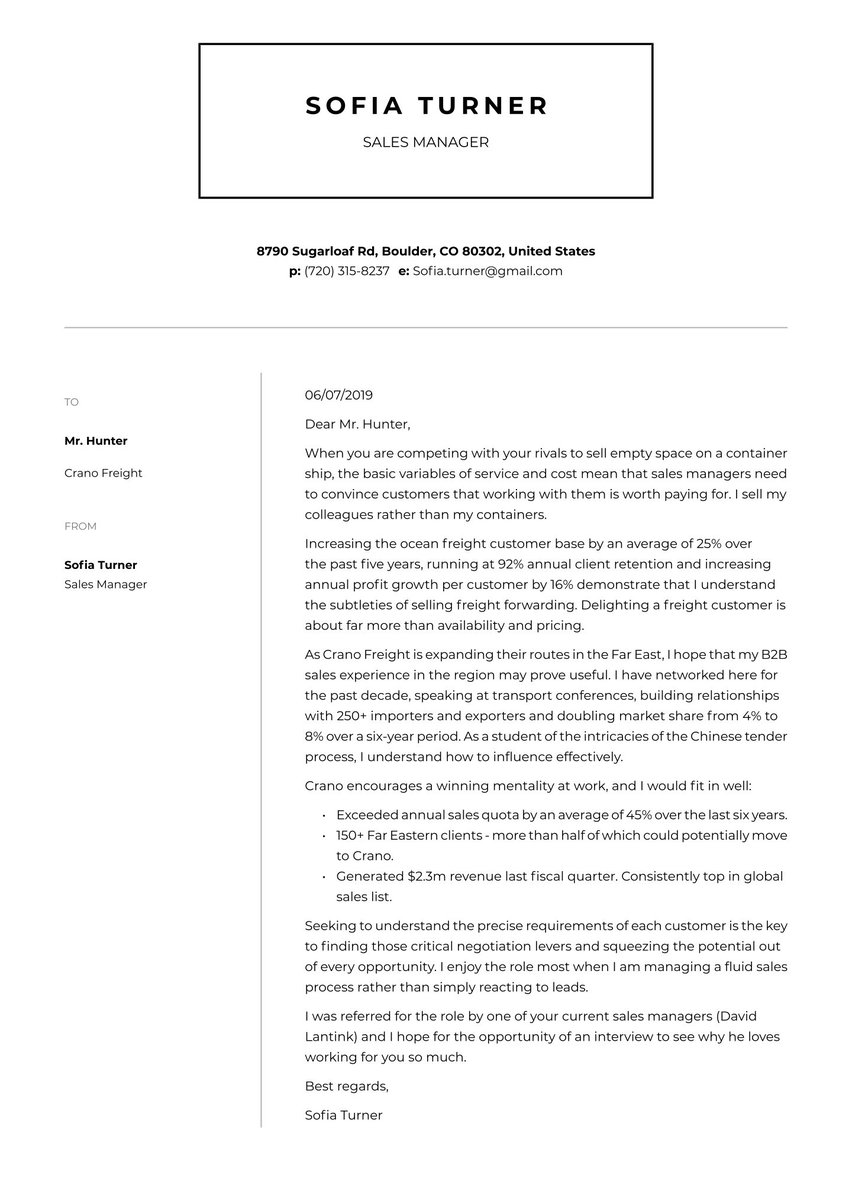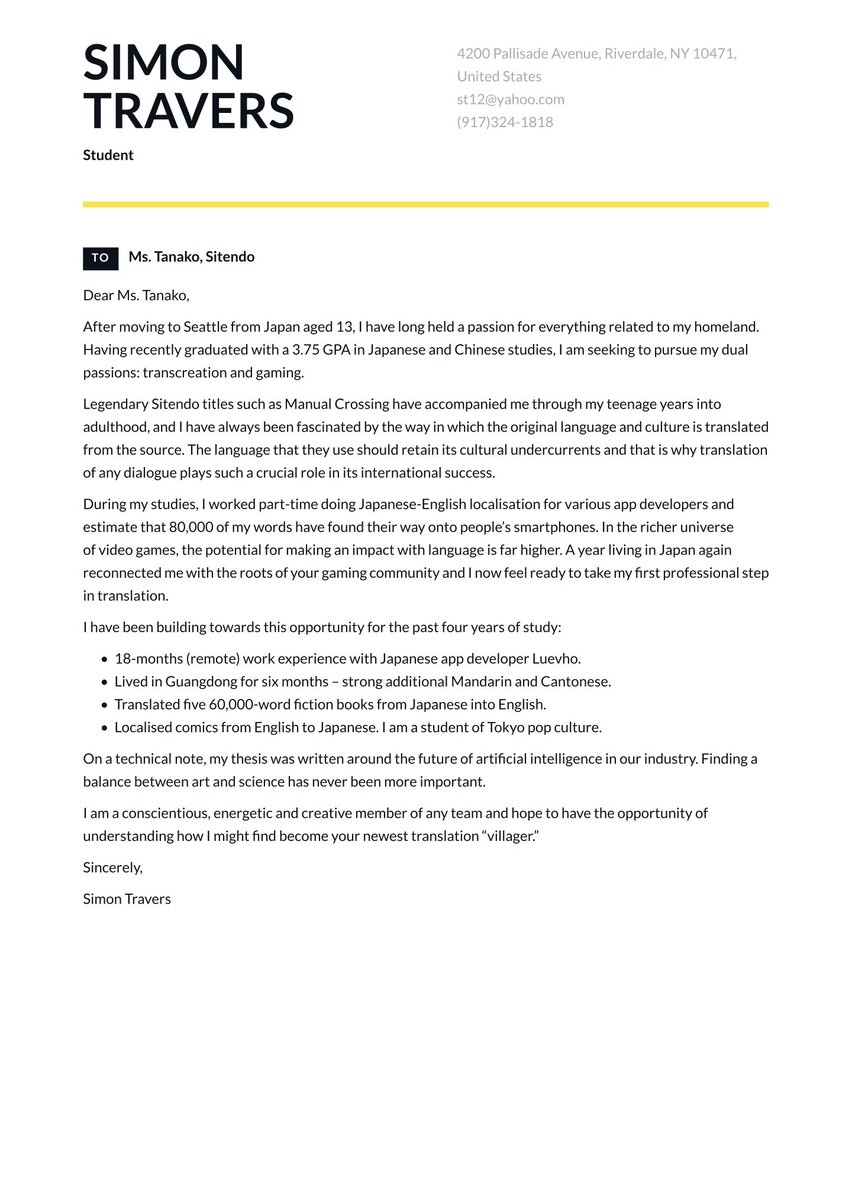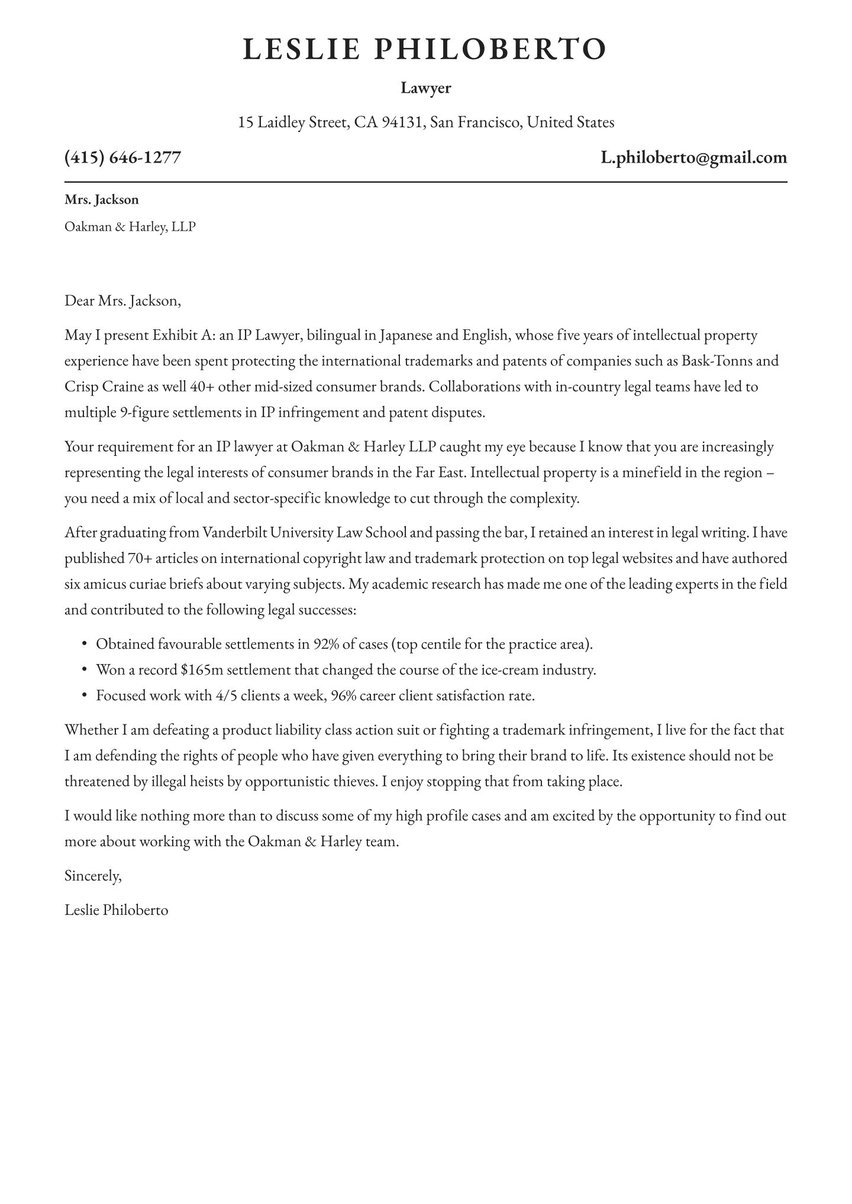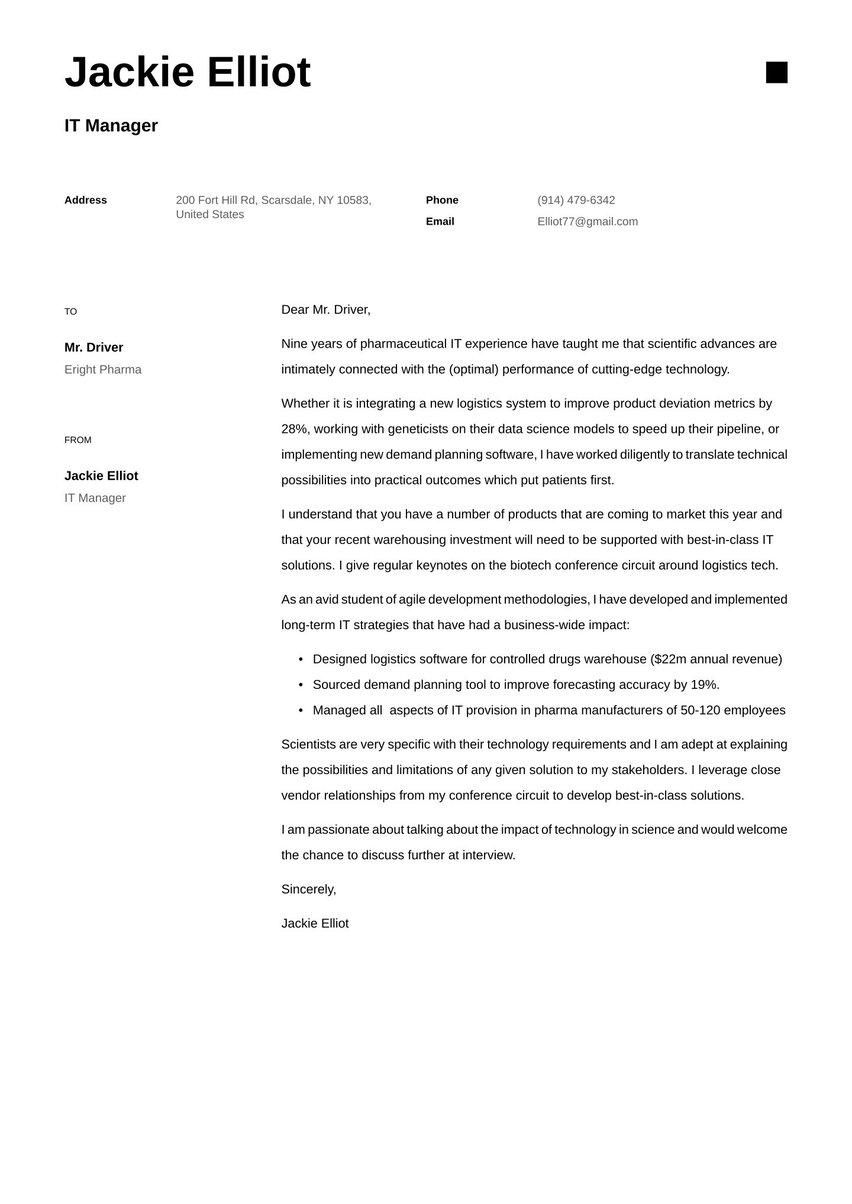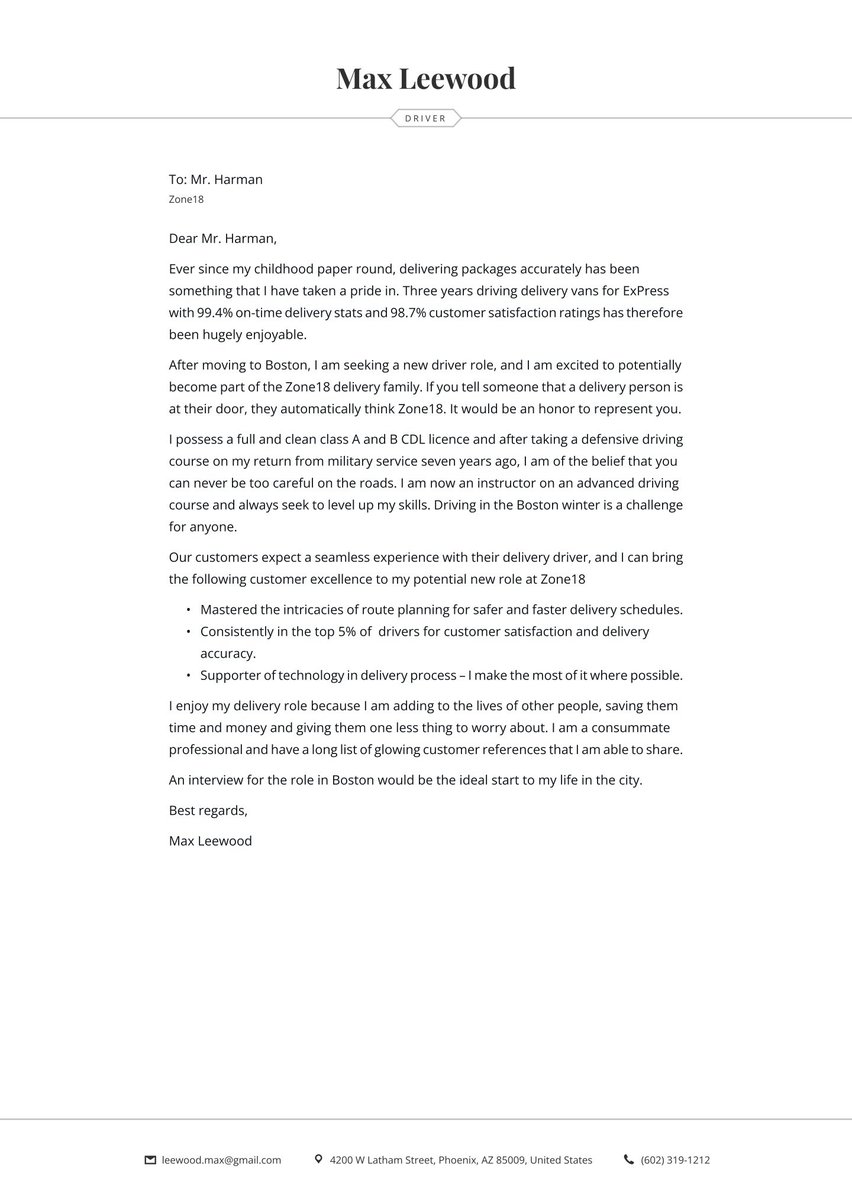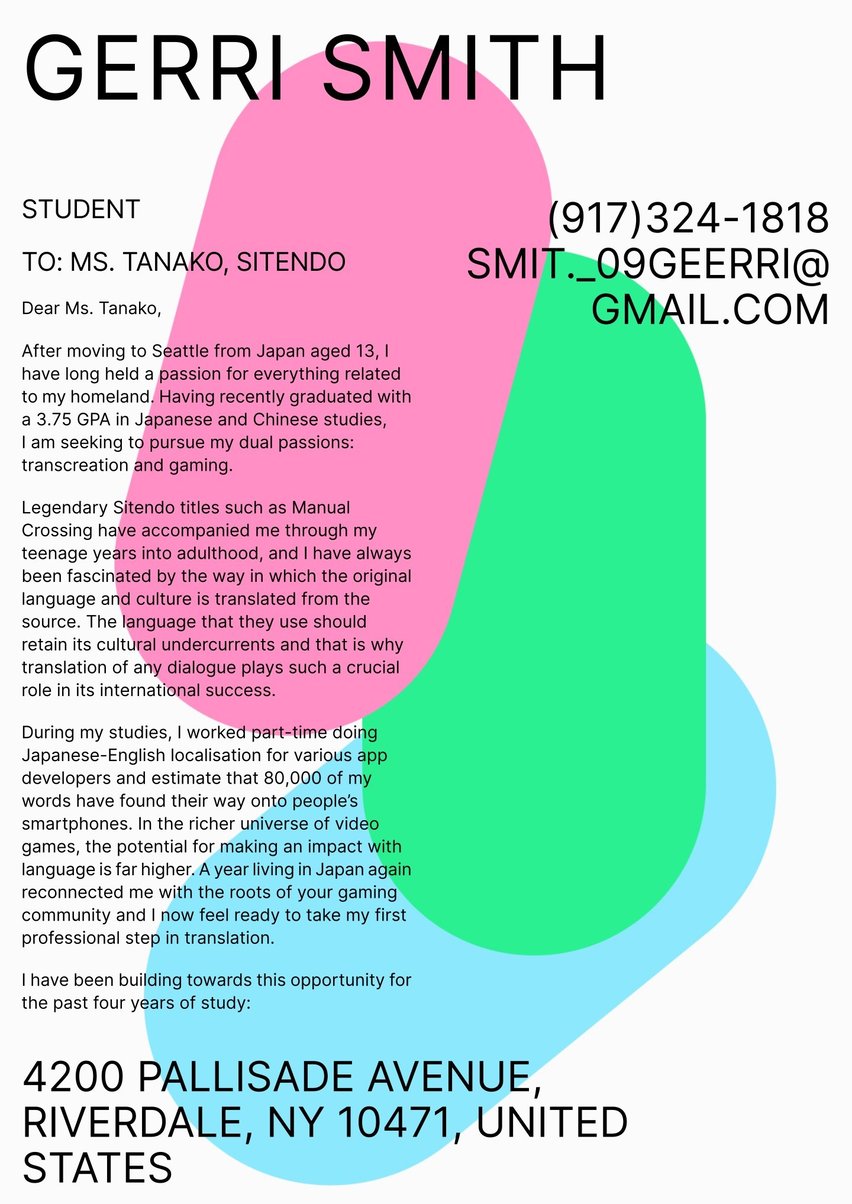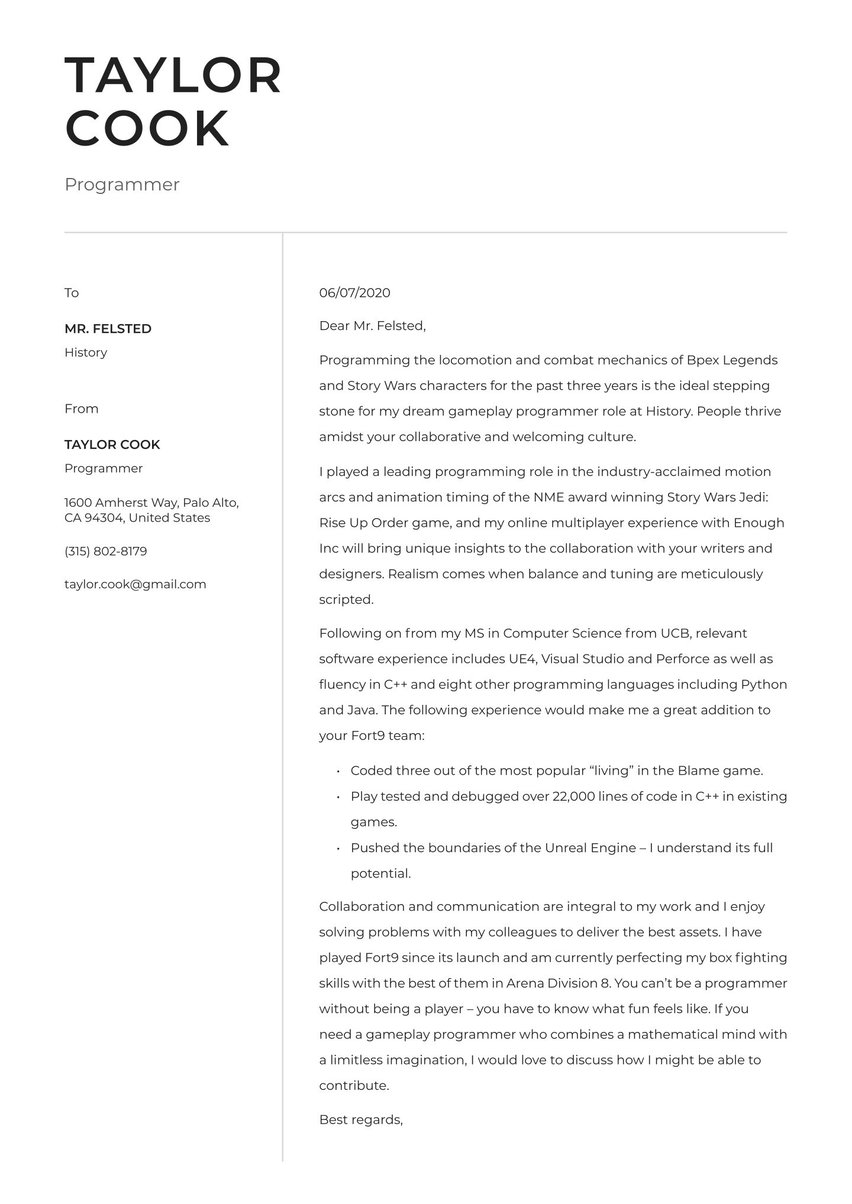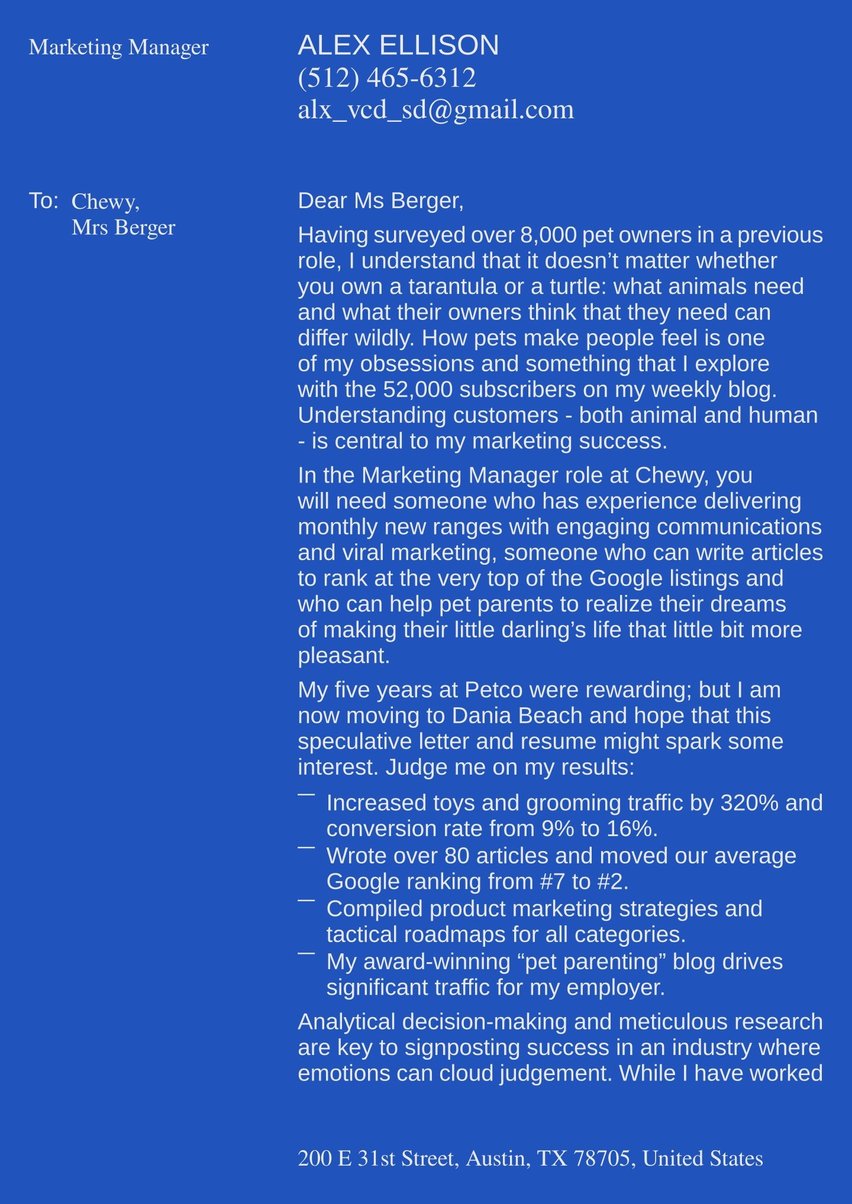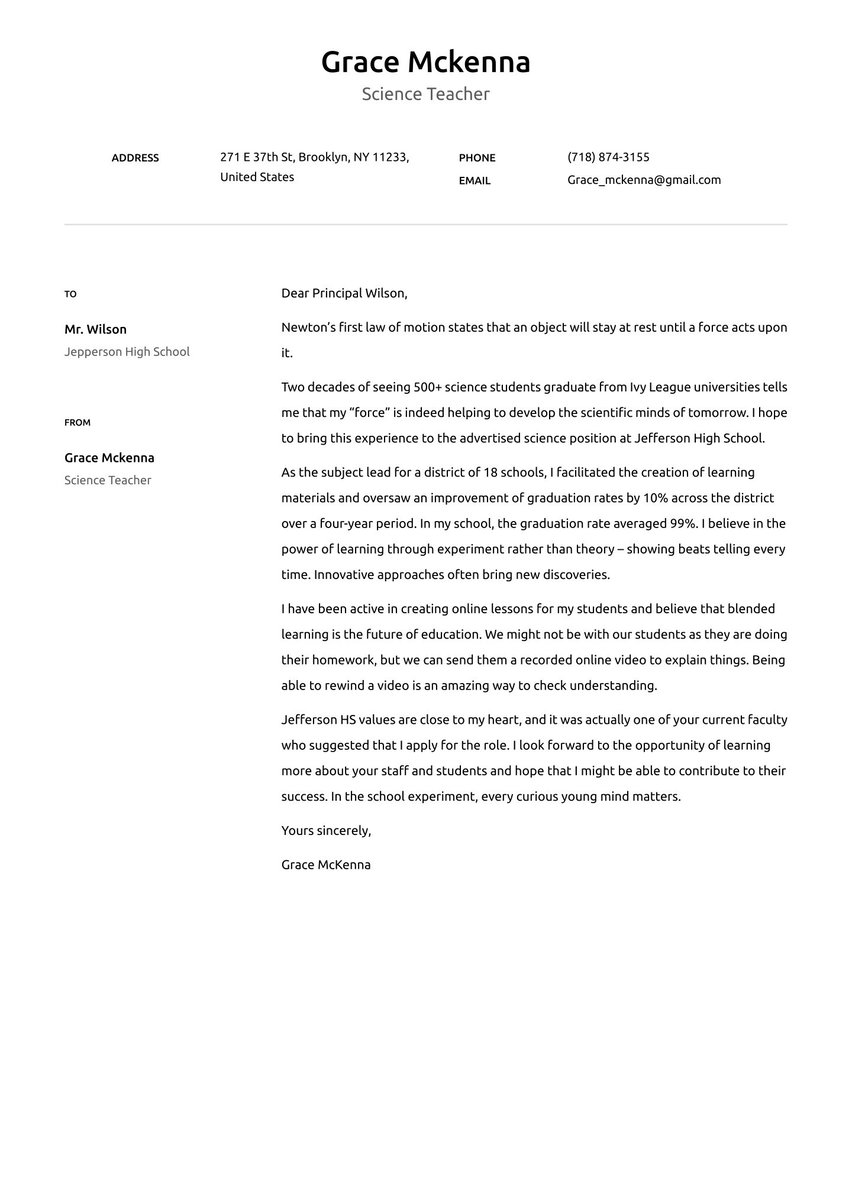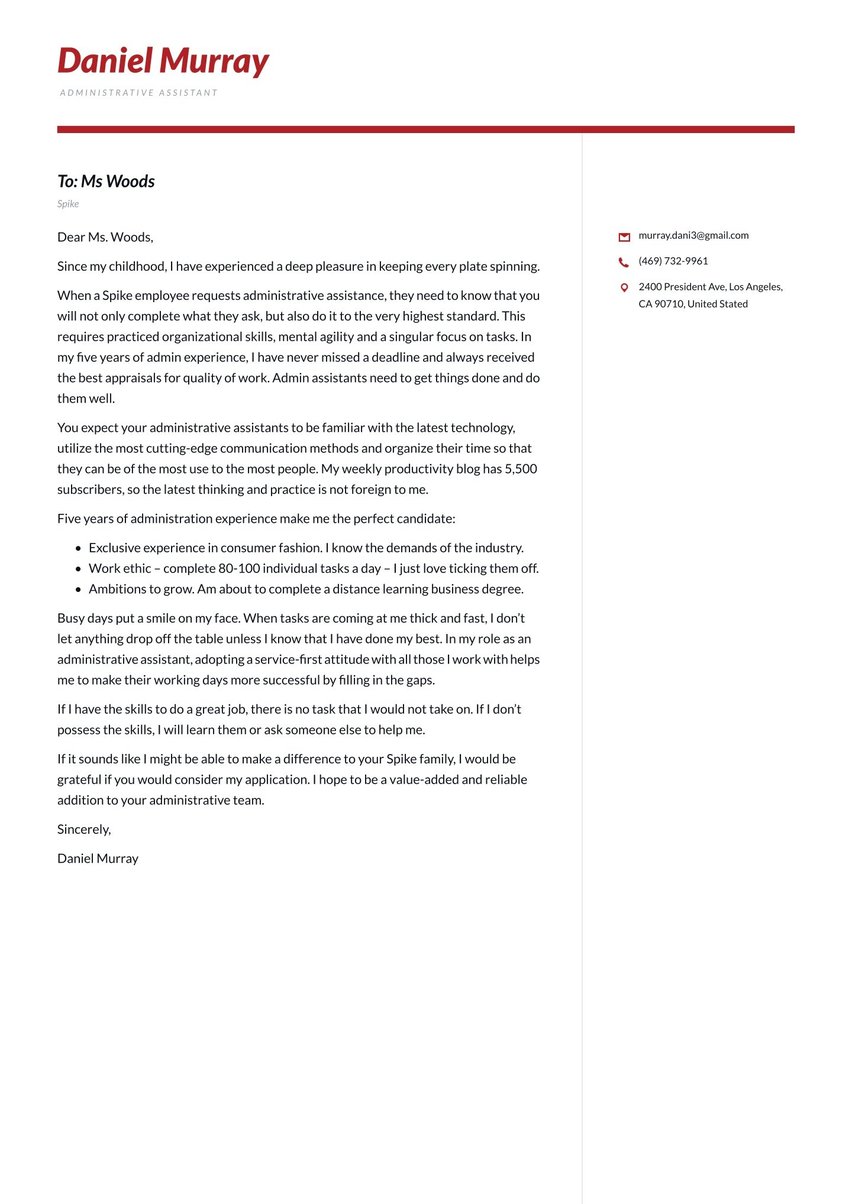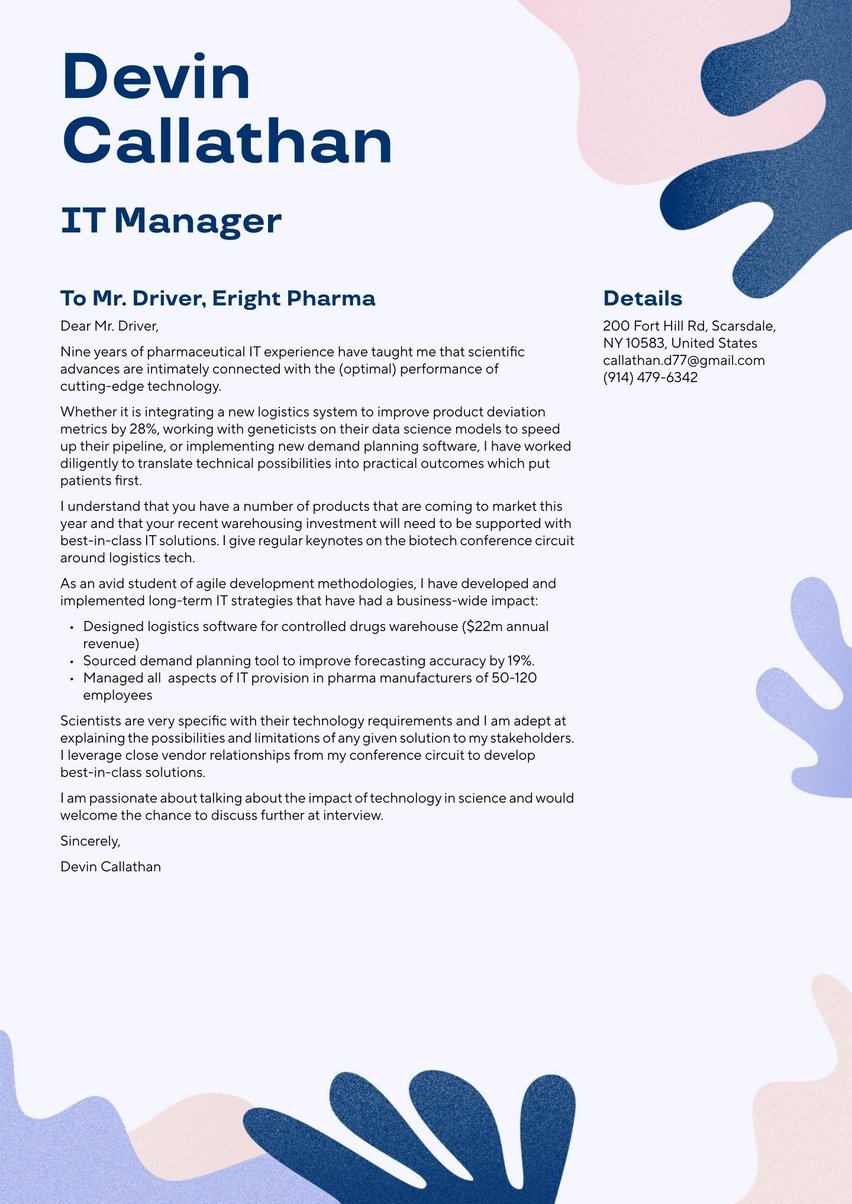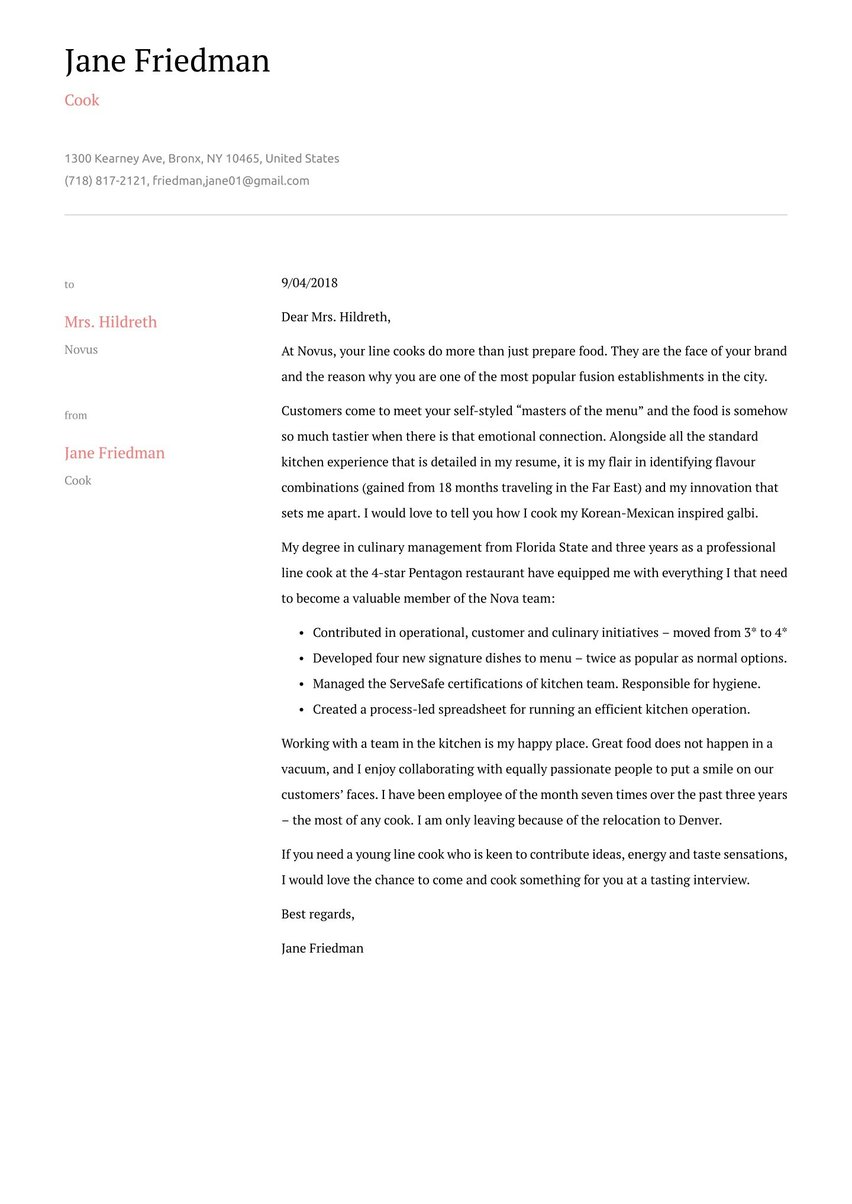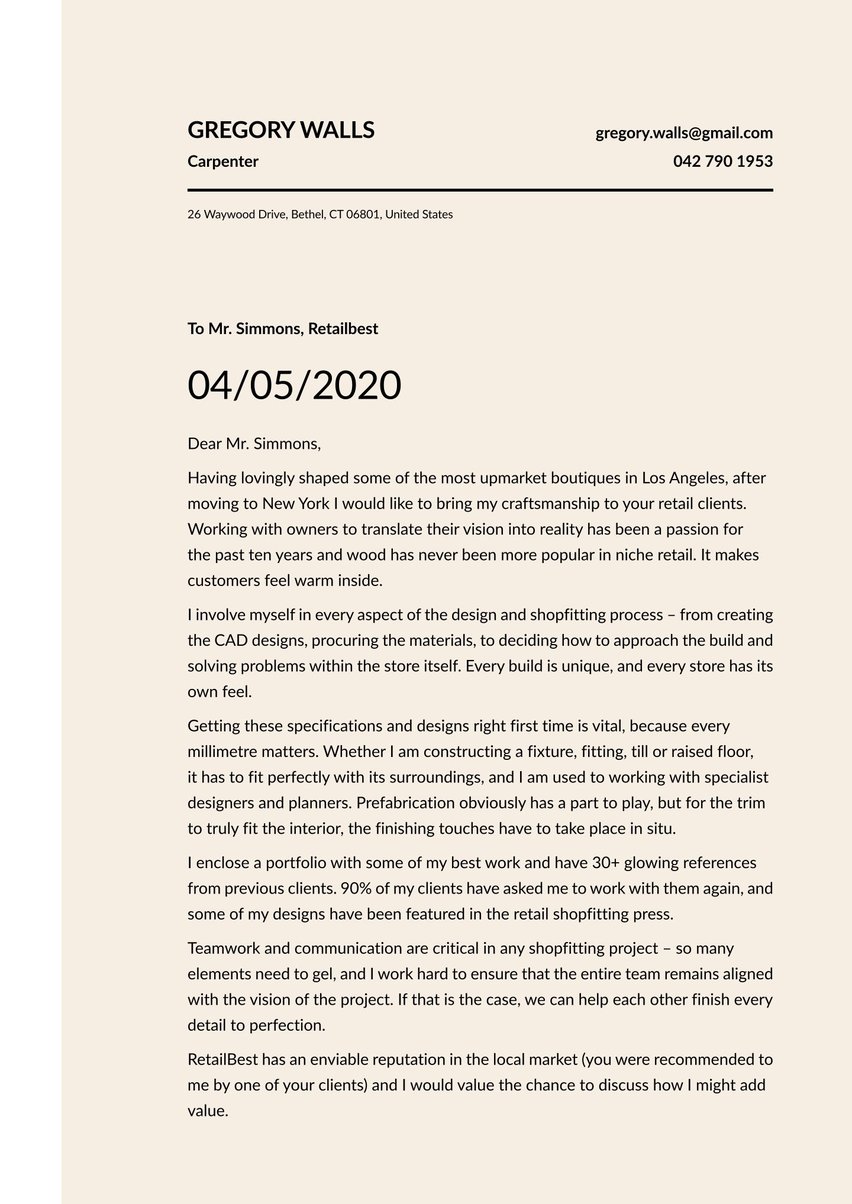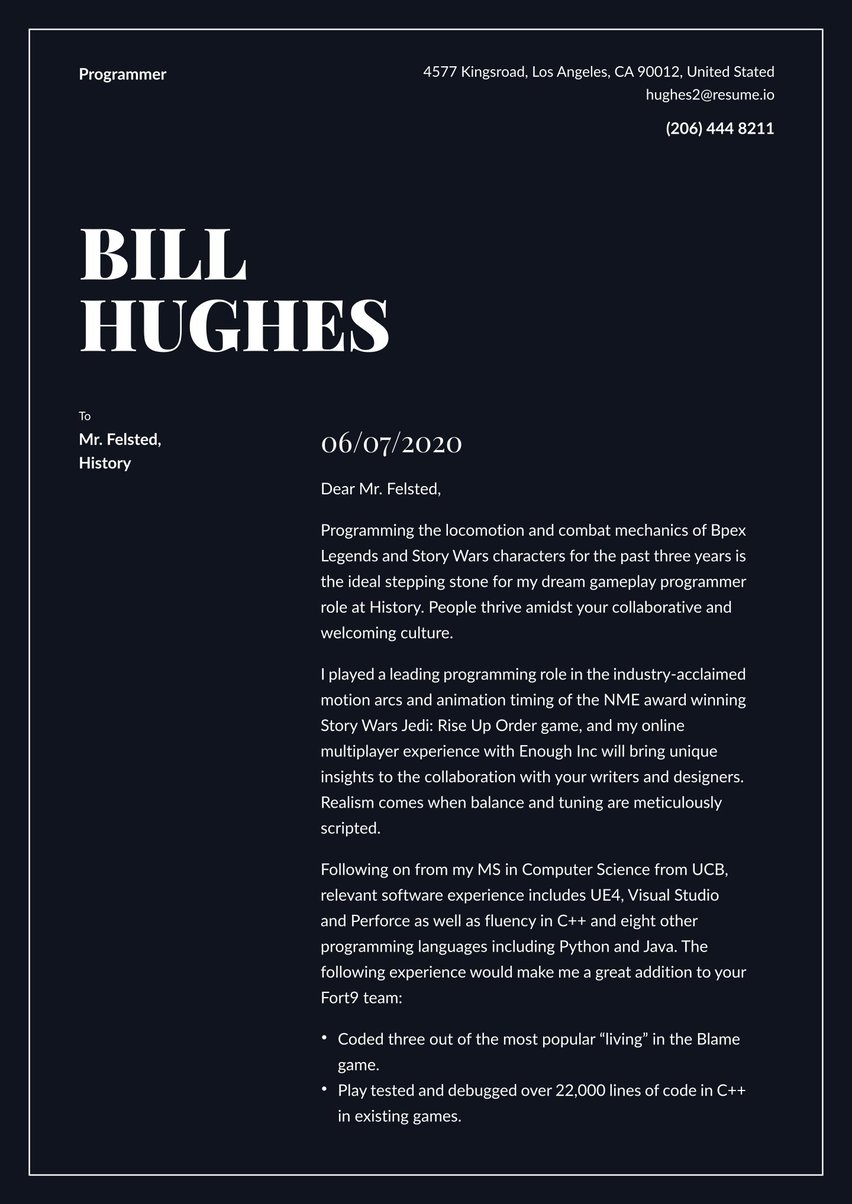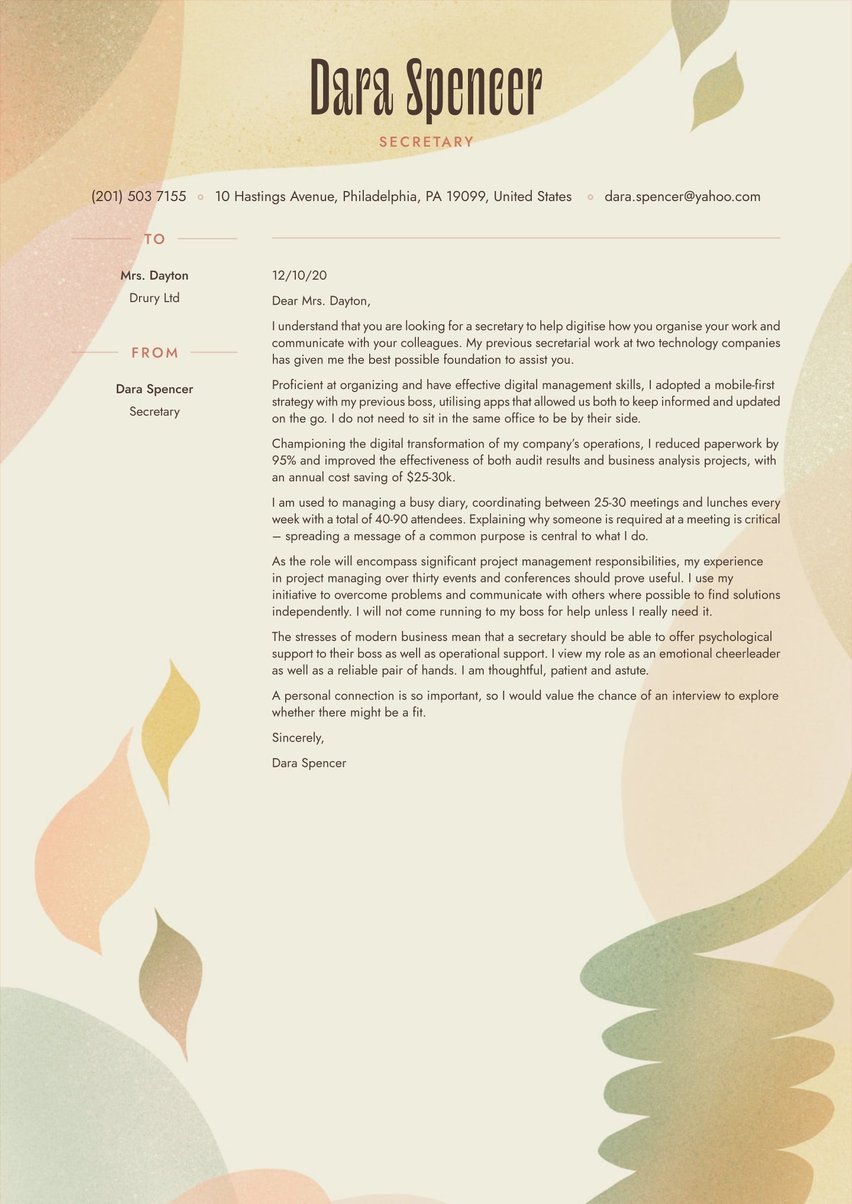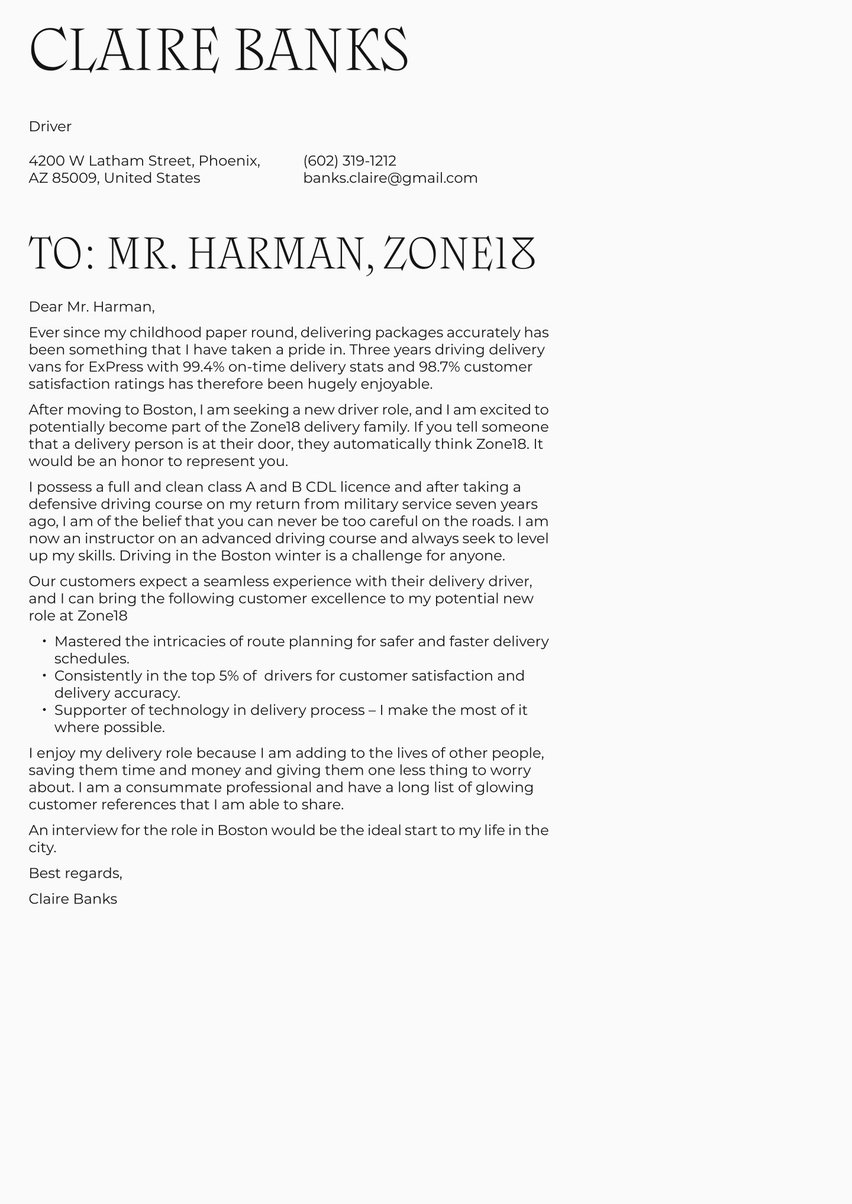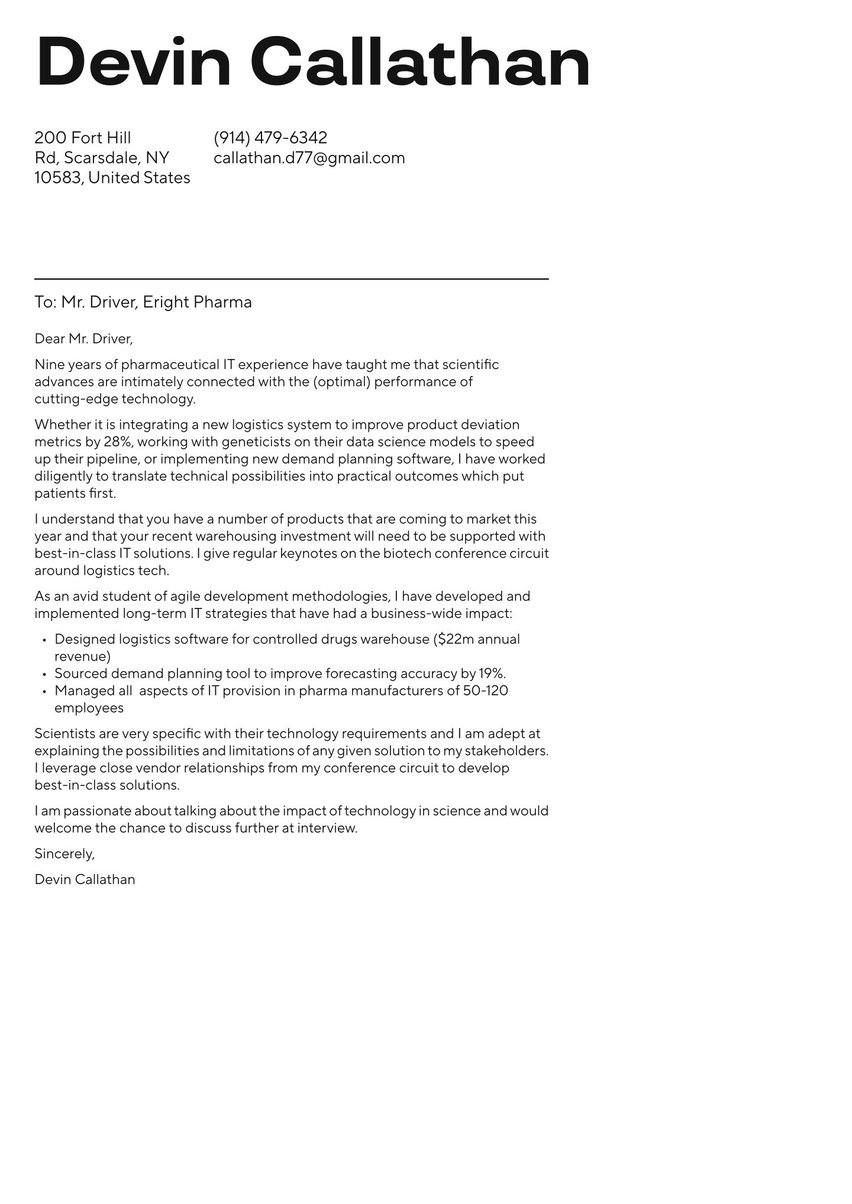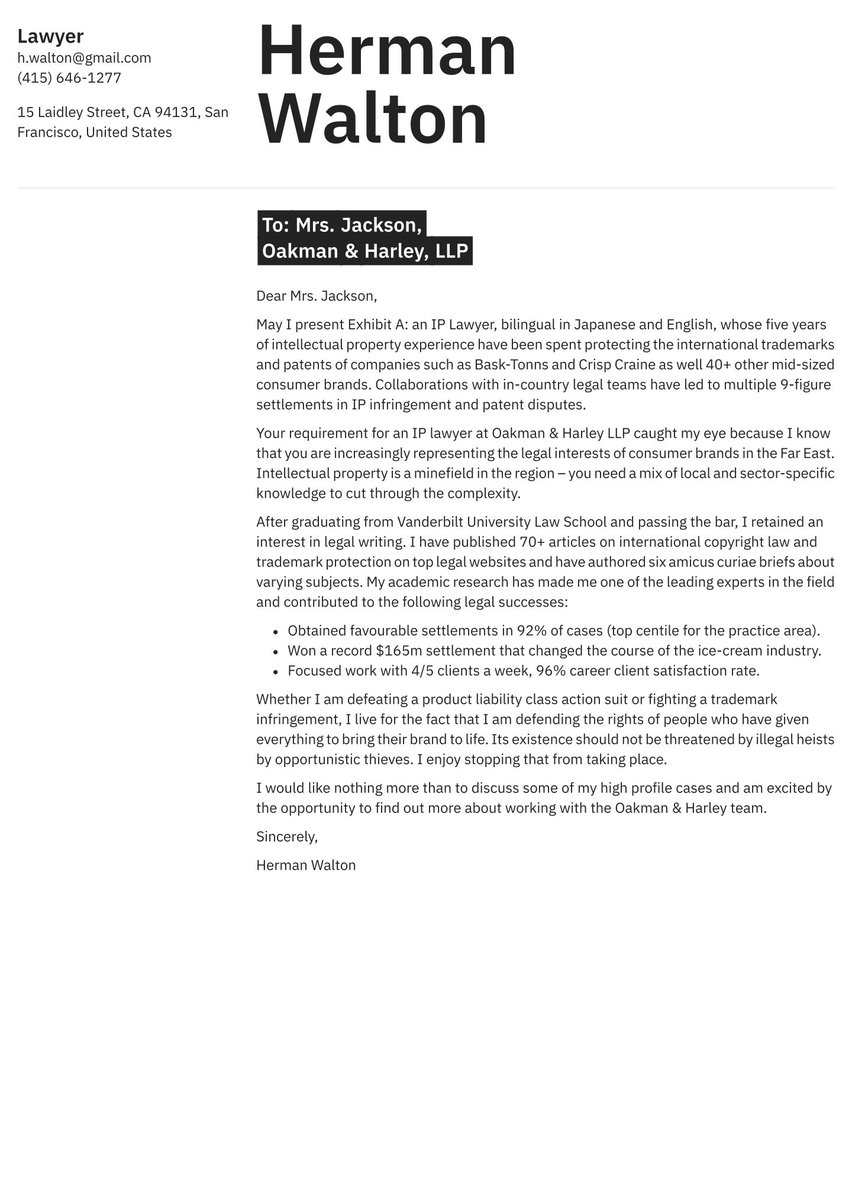For Sales Representative novices and veterans alike who are pursuing a new job, the value of a well-crafted cover letter cannot be overemphasized. Even if there is no application requirement to submit a cover letter along with your resume, opting not to include one makes no sense for those who are serious about their next career move.
In fact, you could be doing yourself a disservice by overlooking the resume’s inherent limitations. As Hays global recruiting agency advises job seekers, cover letters can make all the difference in compensating for what resumes tend to lack in the way of personality and context. “So use the cover letter as your opportunity to add depth and dimension to the sort of candidate that you are.”
Yes, your resume is designed to function as a stand-alone document in outlining essential job qualifications and background. But the potential to influence recruiters is greatly diminished without a cover letter, which has a distinctively different but complementary purpose: to introduce yourself in a manner that is at once more directly informal and readily engaging.
Sales Representatives who have mastered the art and science of positive first impressions can well appreciate that cover letters are like an extended handshake in writing … a throwback to the days when job hunters would walk into an office with no appointment and ask if the employer was hiring before leaving their resume at the front desk.
This guide, incorporating a Sales Representative cover letter example, looks at the following aspects of writing a winning cover letter:
- The best format for a cover letter and components it should include
- How to maximize the impact of each cover letter part: header, greeting, introduction, body and conclusion
- Writing psychology to reveal the person inside the professional (backed up by cover letter samples of actual writing).
Best format for a Sales Representative cover letter
What’s the difference between a winning sales presentation and an outstanding Sales Representative cover letter? The short answer is a well-chosen format that includes all the necessary components plus the writing style to maximize the effect of each section.
Consistently apply this cover letter format containing these components in the same order:
- Cover letter header
- Cover letter greeting
- Cover letter introduction
- Cover letter middle paragraphs (body)
- Cover letter ending (conclusion / call to action + sign-off).
There is no magic formula for cover letter writing, any more than your best sales presentation is cooked up from a secret recipe. But there is a proven, simple cover letter writing approach that starts with keeping it simple and keeping it short: 300 to 400 words, never exceeding a single page and with ample white space for ease of reading.
According to hubspot.com, an effective sales presentation tells a compelling story, highlights your value proposition, aligns with your audience's needs and desires and ends with a strong call-to-action.
Below is a cover letter example that you can use as basic inspiration for your own application document. Alternatively, you can take the cover letter sample writing if it’s particularly applicable to your own experience (just remember to make it unique, there’s nothing worse than a copy-pasted cover letter).
Dear Ms. Underhill,
With a seasonal product such as garden furniture, you need a sales rep who can go into marketing mode for half a year and sales mode for the other half. Having been a rep for two gardening manufacturers previously, I understand the investment that this requires.
My career began with a sales management degree from Northwestern University and a graduate placement selling hot tubs. It was a perfect introduction to selling a high-value seasonal product and many conferences and events later, I had perfected my sales pitch. In my first two years as a sales rep, I skyrocketed my region’s sales by 80%, attracted 55 more customers and won the national sales prize in my second year.
I have just left a role with your competitor due to a change of company ownership – they brought in their own sales team. This was disappointing, as I took great pleasure in eating away at your market share (the net gain for my previous employer was 6%), but after an acrimonious exit and on finishing my gardening leave, I am keen to stay in garden furniture and feel that my three years of direct experience will prove useful.
My accomplishments there are readily transferable:
- Developed a marketing brochure that increased ATV by 35% on tables and chairs.
- Cultivated a sophisticated sales pipeline, including social media in the sales funnel.
- Negotiated payment terms from 60 days to 51 days on average.
- Sourced new products at exhibitions and sourcing trips with the company buyer.
I know that we have met before, but as I was a rival rather than a potential hire, I hope that the current circumstances may be a little more interesting. I would love the opportunity of an interview to discuss the market and how I might contribute to your sales team.
Sincerely,
Tyler Bellinger
As you can see, this cover letter example bridges the gap between a human connection and a professional track-record. While the cover letter sample writing may not be applicable to your own personal story, you can take the methods used here to enrich your own application letter.
We invite you to browse through these sales-related cover letter examples:
Cover letter header
Just as a sales presentation incorporates visually appealing design elements to create a distinctive identity and consistent look, your cover letter header provides another opportunity to stand out and stay readily accessible. An eye-catching advantage can win your cover letter more than a passing glance in the crowd of many others.
But the header’s importance is practical as well as esthetic. As the place where your name, occupation and contact information appears clearly and prominently, it ensures anyone in the hiring manager’s office, department, or organization can readily identify where your job application came from and how to reach you easily. It’s not unusual for printed copies of a cover letter to go missing on someone’s desk, or even for an electronic file to end up in the wrong online or downloads folder, thus giving the header a useful ID label purpose.
A matching pair
It’s not unheard of for a cover letter to become separated from the corresponding resume in a busy hiring staff office. So making them a matched pair makes good sense: one or the other is easier to spot and recognize as belonging to you.
A matching Sales Representative cover letter and resume reinforces you have your act together down to every polished detail. It’s one more way to illustrate your regard for the target audience of a sales presentation — in this case the recruiter on the receiving end of your job application. You understand not only what the employer needs and wants from a top-flight sales representative, but how to make it easy for the recruiter to literally see right away what you have to offer.
If you are stuck for ideas or time, check out the dozens of cover letter samples and cover letter templates available at resume.io. Click on the most appealing cover letter example, type in your replacement text, and that’s it. Your cover letter design and formatting step is done. It’s just as easy to come up with a matching cover letter and resume pair this way.
Whatever document style you go with this time, you will naturally want to change it up next time. Again, you can’t go wrong with a customizable template from resume.io.
Aim of the cover letter header: Stand out in the crowd of job applicants by attracting the right brand of visual attention. Convey that you are a polished Sales Representative with regard for detail and accessibility in delivering the whole integrated package.
Cover letter greeting
Nothing could be simpler than to properly address a cover letter greeting, except for the kind of slips that can happen by taking that simplicity for granted. We are guessing that won’t happen to you, being a Sales Representative, especially if you start off with “Dear …”
As you can see from the cover letter sample presented at the start of the article, “Dear ...” is usually the most failsafe and widely accepted business letter salutation. It’s courteous and respectful, without sounding too stuffy, and almost always appropriate. Alternatives such as “Greetings,” “Hello” or “Hi” may be fine in some circumstances but use discretion regarding the company, culture or familiarity with the person being addressed.
What comes next — “Dear <who>”?
A job applicant’s cover letter should always be addressed to a specific person if the recipient’s name can be determined. However, unless it’s someone you know personally or well enough to address on a first-name basis, the correct form of greeting is “Dear Mr. Black” or “Dear Ms. Blanco.”
Most Sales representatives have likely heard different versions of this customer service advice hundreds of times, as author and speaker Jeff Mowatt puts it: “If you deal with customers, the two most important words are not please or thank you, but are your customer’s first and last names.“
The same evidence-based psychological principle — from infancy, our brain is hardwired to respond positively to the sound of our own name — applies to cover letter greetings. The proper business communication form is “Dear Mr. or Ms. Surname.”
If you are unsure or have no idea who your cover letter should be addressed to, make every reasonable effort to find out. First check the job listing to see if any contact information is provided for the hiring manager (or other cover letter recipient). Failing that, check the company’s website and other online sources such as LinkedIn or industry-related sites.
As a last resort, these workarounds are preferable to the generic cover letter examples of “To Whom It May Concern.” Even if you can’t come up with anyone’s name, a greeting along these lines at least indicates your cover letter is targeting a specific employer and/or position: “Dear Company Name Hiring Manager,” “Dear Department Name Recruitment Officer” or “Dear Job Title Hiring Team.”
Aim of the cover letter greeting / salutation: Addressing the hiring manager (or other recipient) by name is professionally appropriate while also creating a personal connection with the employer.
Dear Ms. Underhill,
Cover letter introduction
Next up is a cover letter introduction designed to resonate right away. When it comes to sales introductions, you’ve learned how to hit the mark every time with a customer-winning first impression. How can your cover letter introduction win the chance to show and tell that to your next employer?
Consider how this cover letter sample intro immediately shows you understand the employer’s needs and priorities:
With a seasonal product such as garden furniture, you need a sales rep who can go into marketing mode for half a year and sales mode for the other half. Having been a rep for two gardening manufacturers previously, I understand the investment that this requires.
You probably learned from some top-notch trainers and read all the right books on rapport-triggering sales openers. Maybe you could write a book or two yourself on how to gain sustained attention from customers within minutes of an introductory greeting that is equal parts personable and professional. But you only have a few carefully worded opening lines in a cover letter to catch and hold the hiring manager’s interest for longer than the few seconds spent skimming on average.
- Awaken this hiring manager’s interest in you as an interview-worthy applicant.
- Why do you want this sales opportunity? What motivates you to make this your next career move?
- Why would you be perfect for this job? What blend of talent, personality, experience and work ethic do you bring to the table
- Shift perspectives:“what’s in it for this employer?”
- Provoke enough curiosity in the recruiting manager to keep reading more. Make it all about “what’s in it for you (sales representative job applicant)?”
- Waste your breath stating the obvious: “I am applying for the administrative officer position at ABC Inc., as advertised on DEF.”
- Make it all about “what’s in it for you (Sales Representative job applicant)?”
- The person reading your cover letter already knows that, and is also quite aware of your motives in expressing an interest in this job: you want an interview!
- Squeeze too much information that discloses too much of your story in the cover letter introduction.
Aim of the cover letter introduction: Grab the recruiter’s attention by focusing your strongest selling suit on what the job and the employer require.
Cover letter middle part (body)
Just as an effective sales presentation gains traction in the middle section, the cover letter body carries on with highlights of your compelling success story. You’ve got this! That is, as long as keep the focus where it belongs: not on yourself but on your audience. Normally that would be the customer, but here it’s the employer you are trying to convince. What does this employer need and what advantage do you offer over other Sales Representatives whose resumes might appear to measure up just as well?
Check out how our cover letter example quickly emphasized facts and figures to prove the candidate’s record in the cover letter middle paragraph: In my first two years as a sales rep, I skyrocketed my region’s sales by 80%, attracted 55 more customers and won the national sales prize in my second year.
Pull substance from your resume but never in such a way that replicates or rehashes the content. Your cover letter is the place to add meaningful context and interpretation. Obviously, your sales track record holds the center-stage spotlight from various angles. Financial profits and market share growth are easy to quantify in dollar amounts. But flesh in this section of your cover letter with anecdotes for added color and shade. Showcase your special talents and interests. Let your personality shine through — especially your passion for the products or services you believe in wholeheartedly and the people you interact with on all sides of the selling process.
Drawn from interviews with a cross-section of leading business experts, Business News Daily compiled this list of 14 traits that most successful salespeople have in common.
These sales professionals:
- care about the customer's interests
- are confident
- are always on
- are subtle
- are resilient
- are extroverted
- are good listeners
- are multi-taskers
- provide insight
- are persistent
- are honest
- are focused
- are optimistic and upbeat
- have a broad worldview and cultural understanding
Aim of the cover letter body: Illustrate how this employer would benefit from your contributions as a seasoned sales representative with an outstanding track record.
I have just left a role with your competitor due to a change of company ownership – they brought in their own sales team. This was disappointing, as I took great pleasure in eating away at your market share (the net gain for my previous employer was 6%), but after an acrimonious exit and on finishing my gardening leave, I am keen to stay in garden furniture and feel that my three years of direct experience will prove useful.
My accomplishments there are readily transferable:
- Developed a marketing brochure that increased ATV by 35% on tables and chairs.
- Cultivated a sophisticated sales pipeline, including social media in the sales funnel.
- Negotiated payment terms from 60 days to 51 days on average.
- Sourced new products at exhibitions and sourcing trips with the company buyer.
How to close a Sales Rep cover letter (conclusion and sign-off)
Perhaps the tightest parallel between a sales presentation and a Sales Representative cover letter lies in the closing. The purpose in each case is to provide an ending that actually aims to secure, rather than conclude, the relationship. The tone of both is persuasive, confident and upbeat, with the door left open for further interaction and follow-up.
However, that does not mean the fate of your job application should be left up in the air by a cover letter conclusion that is too open-ended. If the hiring manager is still reading at this point, your cover letter has already scored some big wins towards the desired outcome: an interview. So what happens now? How do you want the recruiter to feel, think and respond as you wrap up the closing?
Let’s go back and see how we closed our cover letter sample:
I know that we have met before, but as I was a rival rather than a potential hire, I hope that the current circumstances may be a little more interesting. I would love the opportunity of an interview to discuss the market and how I might contribute to your sales team.
Sincerely,
Tyler Bellinger
What every cover letter requires in the final paragraph, just like every effective sales pitch, is a call to action. Before signing off, you need to gently but firmly nudge the employer in the direction of inviting you for an interview. And that’s it! You can now sign off with a simple closing salutation like “Sincerely,” above your name. “Best regards” or even “Best,” are fine also.
Aim of the cover letter closing: End on an enthusiastic note that implies you anticipate the hiring manager will be in touch soon.
Writing and selling psychology
This guide has drawn comparisons between a winning sales presentation and an effective cover letter. In both instances, the perspective and needs of the target audience — customer and employer, respectively — should take precedence.
Listening skills are the key to making that connection, Timothy Tolan, Tolan Group CEO and managing partner, told a Business News Daily interviewer, “Great salespeople sell solutions to problems, and they do that by understanding and listening to the customer."
In the same article, Mark Stevens, CEO of Almost Science, spoke about subtlety as a selling trait: "Great salespeople never look like they are selling anything. They are educating, instilling faith and confidence. They are quietly and invisibly demonstrating why customers should believe in them and, in turn, buy from them."
Infusing personality into a sales pitch or cover letter can enhance their effectiveness as communication tools.
Renowned personal and professional development leader Brian Tracy contends,“ Your personality is more important than your product knowledge and your selling skills. So focus on continuous improvement, and become a well-read professional.”
Psychological insights into storytelling as a selling technique are also interesting and potentially helpful when writing a persuasive cover letter.
Matt Sunshine at hubspot.com explains: “The power of storytelling stems from our ability to empathize with characters who face familiar challenges, persevere, and overcome. In a salesperson’s case, you’re trying to sell a product or service through that same medium. Storytelling humanizes your pitch and process, and it creates lasting connections with prospective customers.”
Key takeaways
- Sales presentations and Sales Representative cover letters have common ground, notably the persuasive goals, target audience angle and opportunity to let elements of personality shine through.
- The need to establish an immediate direct connection with the hiring manager in your cover letter by addressing the employer’s needs is crucial.
- Taking the employer’s perspective gives job applicants an edge over candidates whose approach is relatively impersonal and generic.
- Like an effective sales closing, every cover letter should conclude with a call to action encouraging the recruiter to respond with an interview invitation.
- Use our sales cover letter examples.

